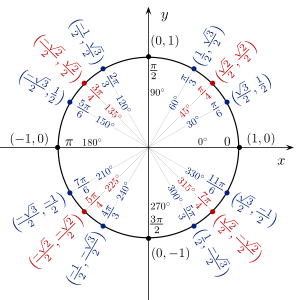Solve algebraically cos2xsinx+sinx=0 with solutions in the interval [0,2pi)?
Been stuck on this homework question for a bit, any help or explanation? I you convert cos2x to (1+2sin(x)) just don't know where to go from there
Been stuck on this homework question for a bit, any help or explanation? I you convert cos2x to (1+2sin(x)) just don't know where to go from there
3 Answers
Explanation:
f(x) = cos 2x.sin x + sin x = 0
f(x) = sin x(cos 2x + 1) = 0
Either factor of the product should be zero:
a. sin x = 0
Unit circle gives -->
x = 0,
b. cos 2x = 1 = 0 --> cos 2x = -1
Explanation:
Start by recalling that
#(1 - 2sin^2x)sinx + sinx = 0#
#sinx - 2sin^3x + sinx = 0#
#2sinx - 2sin^3x = 0#
#2sinx(1 - sin^2x) = 0#
#sinx = 0 and sinx = +- 1#
#x = 0, pi, pi/2, (3pi)/2#
A graph confirms:

Hopefully this helps!
The solutions are
Explanation:
We need to use one of the three cosine double-angle formulae:
In this case, I'll choose the third one so that the equation will only have sines in it.
Here's what it will look like:
Now, we can use a substitution, then solve the equation like a regular polynomial.
Let
Now, plug
Here's a unit circle to remind us of some sine values:

We can see that
That's it. Hope this helped!



